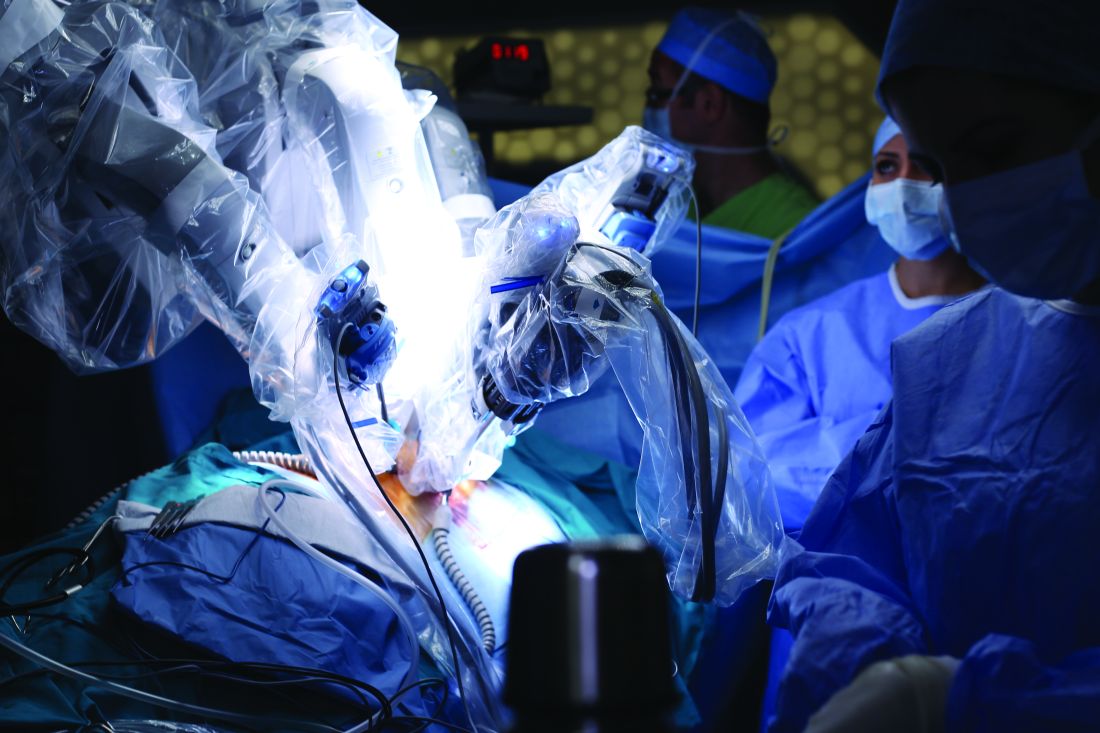JACKSONVILLE, FLA. – Findings from a retrospective chart review of robotic operations performed over 6 years has identified situations in which surgeons may consider closing 8-mm port sites after robotic surgery, according to a presentation at the Association for Academic Surgery/Society of University Surgeons Academic Surgical Congress.
In reporting the results, Ramon Diez-Barroso, MD, of Baylor College of Medicine, Houston, acknowledged the low incidence of robotic port–site hernias in the study group – 0.8% of 12-mm port sites and 0.7% of 8-mm port sites. These percentages represent two and three ports, respectively. The study involved 178 patients who had general surgery and oncologic procedures between July 2010 and December 2016, with a total of 725 ports. The 8-mm sites were not closed, whereas the larger port sites were.“Although the incidence of hernia through the 8-mm port sites was low, it’s still important because it’s a significant cause of morbidity in these patients,” Dr. Diez-Barroso said. Two of the three 8-mm port-site hernias required emergency surgery for small bowel incarceration.
“Both of the hernias occurred in the left lower quadrant in the lateral most port, near the anterior superior iliac spine,” he said. “The nearest site of muscle insertions was where the abdominal wall muscle layers have a limited ability to slide over one another during insufflation and desufflation and therefore have a lack of ability to seal off the port site correctly.”

